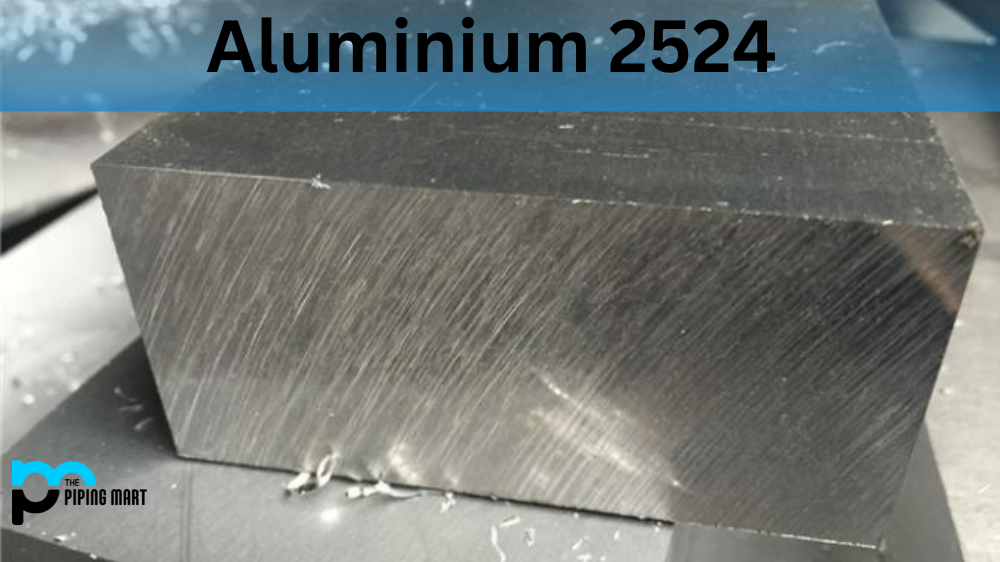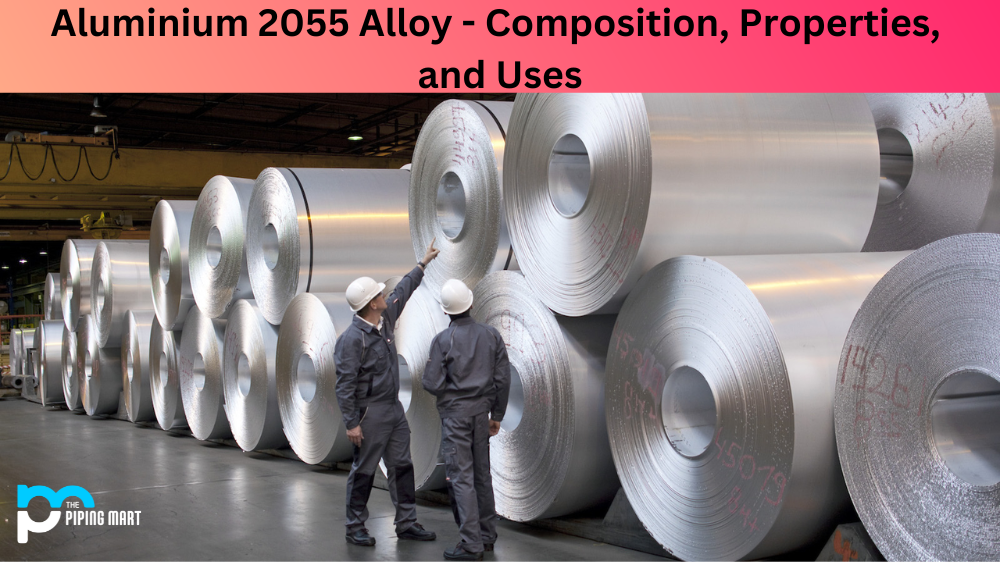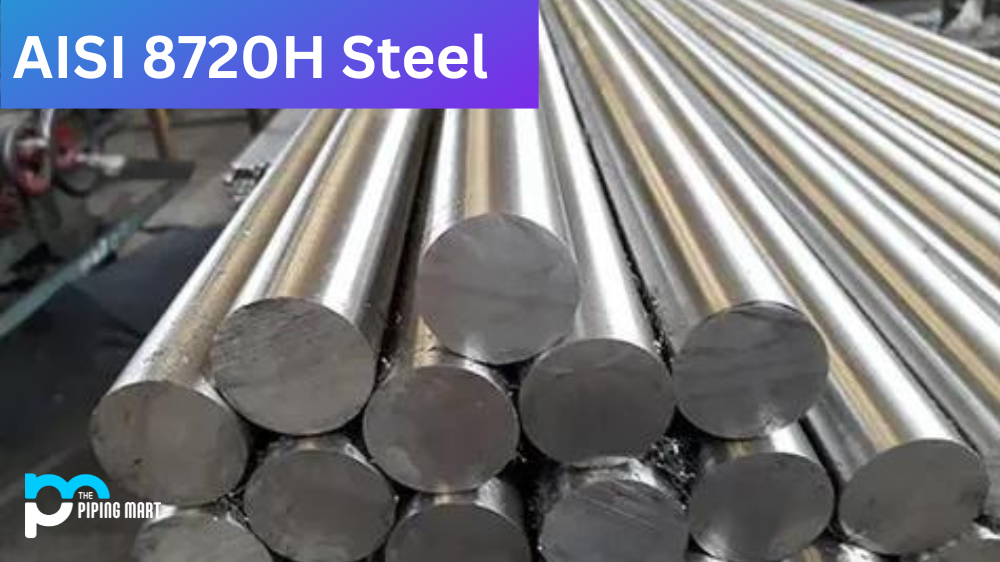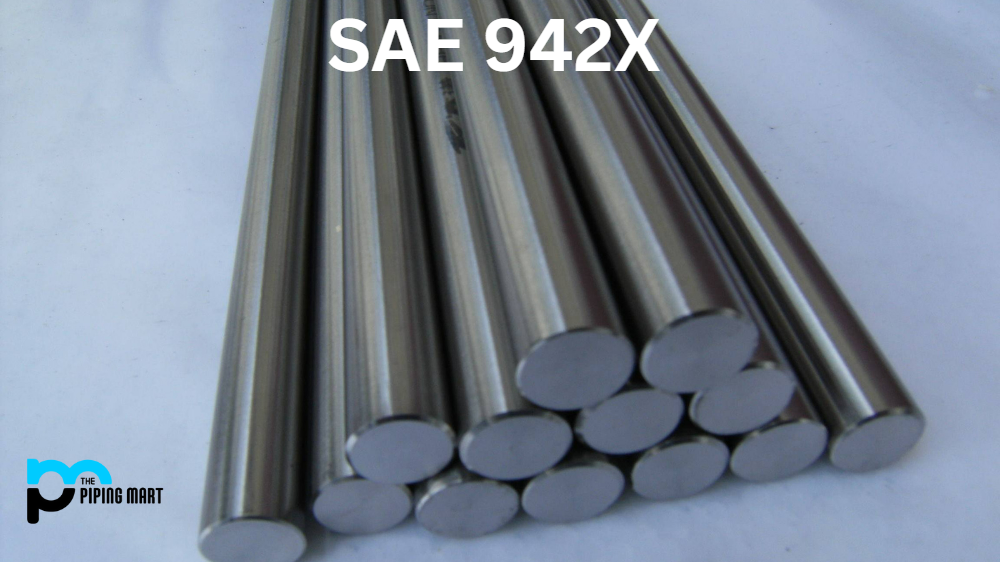Aluminium 2524 is an aluminium-copper alloy with excellent strength and fatigue properties. Because it combines toughness, strength, and corrosion resistance, this alloy is well suited for various applications such as aerospace components, connecting rods, truck frames, and structural components. Aluminium Alloy 2524 is a popular material in various industries due to its excellent mechanical properties and high strength-to-weight ratio. Classified under the DIN number 3.4365 and the UNS number A92524, this alloy is well-known for its corrosion, fatigue, and stress-rupture resistance. Its toughness and durability make it a preferred choice for aerospace and defence applications. Engineers and manufacturers rely on Aluminium Alloy 2524 to produce lightweight yet strong structural components for aircraft, rocket engines, and missiles. With its outstanding properties and versatility, this alloy is a game-changer in engineering and manufacturing. In this blog post, we will discuss the composition and properties of Aluminium 2524, its uses, corrosion resistance, heat resistance, heat treatment, machining and welding capabilities.
What Forms of Aluminium Alloy 2524 is Available at Piping Mart?
- Aluminium Alloy 2524 Nuts
- Aluminium Alloy 2524 Bar
- Aluminium Alloy 2524 Bolt
- Aluminium Alloy 2524 Pipe
- Aluminium Alloy 2524 Screw
- Aluminium Alloy 2524 Tubing
- Aluminium Alloy 2524 Valves
- Aluminium Alloy 2524 Washers
- Aluminium Alloy 2524 Flanges
- Aluminium Alloy 2524 Fasteners
- Aluminium Alloy 2524 Electrodes
- Aluminium Alloy 2524 Stud Bolts
- Aluminium Alloy 2524 Sheet Plates
- Aluminium Alloy 2524 Pipe Fittings
- Aluminium Alloy 2524 Forged Fitting
- Aluminium Alloy 2524 Instrumentation Fittings
Aluminium Alloy 2524 Composition
Aluminium 2524 contains copper (2 – 4%), manganese (1 – 2%), chromium (0.2 max), and magnesium (2 – 3%) as main alloying elements. This aluminium alloy offers superior mechanical properties when tempered or quenched. It also has good weldability with high tensile strength and an acceptable combination of yield strength from 65ksi up to 95ksi. Its fatigue strength is approximately 120 ksi at 1 million cycles, making it suitable for highly stressed components in aircraft or other vehicles.
| Cu | Mg | Mn | Fe | Si | Zn | Ti | Cr | Other | Al |
| 4.0~4.5 | 1.2~1.6 | 0.45~0.7 | 0.12 | 0.06 | 0.25 | 0.10 | 0.05 | 0.15 | Remainder |
Aluminium Alloy 2524 Chemical Properties
Aluminium 2524 is an alloy consisting of 92.7% aluminium, 6.3% copper, and 1% manganese. It offers excellent resistance to atmospheric corrosion and thus can be used in aluminium angles, beams, and channels exposed to outdoor elements. Its tensile strength also makes it ideal for applications requiring high fatigue properties like aircraft components like fuselage frames and bulkheads constantly exposed to environmental stressors. Aluminium 2524 also has higher mechanical stability than other alloys, which is why it can be used in cryogenic environments such as rocket engines or spacecraft bodies. Ultimately, these remarkable chemical properties make Aluminium 2524 perfect for many applications.
Aluminium Alloy 2524 Mechanical Properties
Aluminium 2524 is notable for its high-strength mechanical properties, making it an ideal material for various industrial applications. It is also corrosion-resistant and weldable, adding to its versatility. It is made from aluminium alloy with copper and magnesium, which lend it greater strength than other aluminium alloys. Aluminium 2524 can be effective in hostile environments like chemical plants where resistance to corrosion and chemical attack are essential. Its tensile strength and yield surpass that of many steel alloys, resulting in an extremely strong yet lightweight material ideal for heavy-duty construction applications. With its useful qualities and impressive mechanical abilities, aluminium 2524 stands out as one of the top contenders when selecting industrial materials.
| Tensile Strength
|
Yield Strength(Mpa)
|
Elongation(%)
|
| 409~501 | 359~398 | 13~15.8 |
Aluminium Alloy 2524 Physical Properties
Aluminium 2524 is made of aluminium, copper, and magnesium, making it one of the strongest alloys. This strength gives it high physical properties such as resistance to wear and tear corrosion resistance in any atmosphere, high electrical and thermal conductivity, and increased strength at higher temperatures. Its good machinability means it can be used for various engineering applications where regular aluminium doesn’t suffice. Furthermore, Aluminium 2524 has an outstanding rigidity-to-weight ratio, allowing developers to use this alloy for projects needing to minimize any structural disturbance forces. Due to its extensive physical properties, Aluminium 2524 looks set to continue its dominance in the industry for many years.
Aluminium Alloy 2524 Uses
Aluminium alloy 2524 is a versatile metal with a wide range of uses in the consumer and industrial sectors. This strong and lightweight alloy has excellent corrosion resistance and is particularly useful in applications that require high strength and toughness. In the aerospace industry, it is used to construct aircraft frames, wings and landing gears. Within the automotive industry, alloy 2524 is used for pistons and other components that require high strength and durability. It is also used in sports equipment such as baseball bats, golf clubs, military vehicles, and equipment construction. With its numerous applications, aluminium alloy 2524 significantly impacts various industries and continues to fuel innovation in material science.
Aluminium Alloy 2524 Uses in Industries
Aerospace Industry
Aluminium Alloy 2524 is commonly used in the aerospace industry due to its high strength-to-weight ratio and excellent fatigue resistance. It is often used in aircraft structures, such as wings, fuselage frames, and engine components.
Automotive Industry
The automotive industry also uses Aluminium Alloy 2524 for its lightweight properties and corrosion resistance. It often produces car bodies, wheels, and other structural components. Its high strength also makes it suitable for use in racing cars.
Marine Industry
Aluminium Alloy 2524 is used in the marine industry for its corrosion resistance and strength. It is commonly used to construct boats, ships, and other watercraft. Its light weight also helps to improve fuel efficiency.
Defense Industry
Due to its high strength and durability, Aluminium Alloy 2524 is widely used in the defence industry for military vehicles, weapons systems, and armour plating. Its ability to withstand harsh environments and extreme temperatures makes it ideal for these applications.
Construction Industry
Aluminium Alloy 2524 is often used in the construction industry for its lightweight properties and ease of fabrication. It can be easily formed into various shapes and sizes, making it suitable for building applications such as roofing, siding, and window frames.
Aluminium Alloy 2524 Corrosion Resistance & Heat Resistance
Aluminium 2524 offers good corrosion resistance in both oxidizing and reducing environments. It can withstand temperatures up to 300°C without losing its mechanical properties, making it suitable for many industrial applications requiring high-temperature performance, such as automotive engines or turbines. The alloy’s good corrosion resistance makes it ideal for use in corrosive environments such as marine applications where salt spray exposure is common.
Aluminium Alloy 2524 Heat Treatment
Aluminium 2524 can be heat treated to achieve higher strengths through tempering. Still, this process should be done carefully to avoid cracking during quenching due to the presence of copper, which causes the material to harden faster than other alloys without copper content.
Aluminium Alloy 2524 Machining
The material can be machined using conventional methods, but some parts may require special tools due to their high hardness, even after heat treatment.
Aluminium Alloy 2524 Welding
Aluminium 2524 can be welded using conventional methods like MIG/TIG welding with filler metals containing silicon or zinc-aluminium alloys, depending on the application requirements, such as the strength or aesthetics desired for the end product manufactured. Preheating before welding should be done at temperatures between 50°C and 250°C, depending on the material’s thickness, to reduce distortion while still achieving sufficient penetration during the welding processes.
Conclusion
All in all, Aluminium 2524 has many advantages over other materials when used in various industrial applications requiring high strength-to-weight ratio along with good corrosion resistance at elevated temperatures making it an ideal material choice for many industries including aerospace engineering, automotive manufacturing and marine applications among others where lightweight yet strong components are needed that can withstand harsh environmental conditions while still maintaining their mechanical properties even after prolonged periods of time under extreme temperatures or pressures making them more reliable than their counterparts made out of other materials such as steel or aluminum alloys without copper content which are not suitable for these types of extreme conditions where reliability is key factor determining success rate from project completion point view thus saving money that would have been spent on repairing damaged components if they were made out of weaker materials instead. Intended Audience: Engineers working with aluminium alloys looking for information about Aluminum 2524’s composition, physical properties, uses and machining capabilities.

Abhishek is a seasoned blogger and industry expert, sharing his insights and knowledge on various topics. With his research, Abhishek offers valuable insights and tips for professionals and enthusiasts. Follow him for expert advice on the latest trends and developments in the metal industry.




